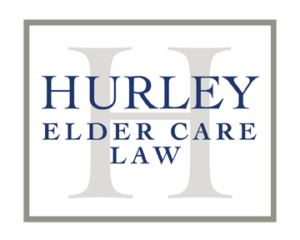Alzheimer’s Disease
Your mom got the dreaded diagnosis! What do you do first? Start by contacting your local chapter of the Alzheimer’s Association; ask for guidance and use their printed information. Locate a geriatric care manager, doctors specializing in dementia, adult day care services and respite care services. Eventually you will want to investigate memory care facilities…
Read MoreWe are an elder care law firm, but we work with individuals and family members of any age who are dealing with a debilitating disease and are in need of long term care. Unfortunately, over the last 5 years we have seen an increasing number of families come to us because their spouse, mother,…
Read MoreThe decision to pursue guardianship should not be taken lightly. There are real risks with pursuing guardianship: -The guardianship process requires you to say things about your loved one in open court and often in front of your loved one. Telling a judge that you think your mom is incapable of handling her own affairs…
Read MoreCan a doll really help someone with Alzheimer’s disease? You may be shocked to learn that yes, for many living with dementia, a doll or other soft lovey can be very calming and even provide a sense of purpose and belonging. We were excited to see this article in Today that explored the impact a…
Read MoreCaregivers commonly have feelings of loss and grief as their life is changed by Alzheimer’s. You are entitled to these emotions and may start to experience them as soon as you learn of the diagnosis. Share your feelings and seek support as you go through this process, as it is normal to feel loss when…
Read MoreWhy do women make up two-thirds of Alzheimer’s cases? Studies are on-going during this month, National Alzheimer’s Disease Awareness Month. At the NewYork-Presbyterian/Weill Cornell Medical Center, Dr. Richard Isaacson, neurologist, is determined to find answers to this question and is treating younger people at risk for the disease decades before symptoms show up. Dr. Isaacson…
Read MoreNot all persons who have Alzheimer’s disease are alike, making it difficult for both the family and doctors. Knowing the various signs or stages of the disease helps one to cope and offer the most effective help. There are seven stages of the disease, as follows: Stage One has no signs. The disease is undetectable.…
Read MoreEarly indicators of Alzheimer’s disease exist within our eyes, according to researchers, meaning a non-invasive eye scan could tip us off to Alzheimer’s disease years before symptoms occur. Alzheimer’s affects the retina — the back of the eye — similarly to how it affects the brain, notes neuroscience investigators at Cedars-Sinai Medical Center in California. Through a high-definition eye scan, the researchers found…
Read MoreDon’t wait to take care of your estate planning needs. It’s crucial to make these important decisions while you are in the prime of your life instead of waiting until you start declining.
Read MoreThe eagerly awaited trials of the Alzheimer’s drug LMTX, has proven to be a disappointment to researchers.
Read MoreSubscribe to our blog and monthly newsletter.











